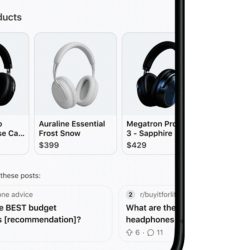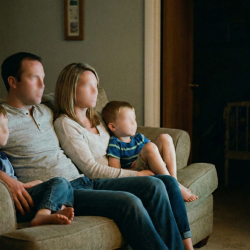The IPA’s Price Isn’t Right report pulled no punches. The report, published last month, found that despite years of discussing how to modernise the pricing model, agencies are no closer to ditching hourly billing, which is ill-suited to the increasingly strategic, hybrid, and AI-inflected marketing landscape.
While there’s appetite for change, the report argued that agencies and clients needed to show more courage in rethinking how value is defined, delivered and priced.
It’s a topic Genevieve Tompkins, CEO of Goodstuff, says she’s been talking about for some time. She spoke frankly to MediaCat UK about why shifting to outcome-based pricing remains so difficult in practice, how clients and procurement processes often entrench the status quo, and what a better system might look like.
Do you agree with the recent IPA report which argues that agencies need to rethink current pricing models?

I completely agree. I don’t think any agency leader would disagree. The challenge comes in the ideas and the execution and how you actually drive change.
We need to move to a value-based system, but it has to be a system change, not on an individual basis. It’s very, very hard to tackle on a case-by-case basis.
I think the whole market has worked within the confines of an agency commission model at a discount of only 15%, or a charge that sits within that 15% when 50% of media doesn’t need an agency that carries agency commission anymore.
It’s an antiquated model to start with, and it’s something that we are trying to move away from as much as possible, but it’s challenging.
How does Goodstuff approach pricing? Have you introduced or explored any alternative models?
We have a blend. Some clients will be commission-only. Some might be a hybrid of commission and retainer. And some might also have a PRF [Performance Related Fee] in there, which is where you start to move towards more value-based pricing.
PRFs are accepted in the current system. The difficulty is it’s often tricky to arrive at an agreed solution because they need a certain type of measurement.
Whilst we do them regularly, it’s not necessarily the best way. Often you’re doing it in order to make sure that you hit the margin you need for that piece of business to be profitable. But if you were charging correctly in the first place, you wouldn’t necessarily need a PRF in place.
And clients find PRFs painful to administer. They’re just painful, end-to-end — to agree, monitor, and then to measure and agree on a number.
We probably have more performance-related questions with smaller clients, and often those that come to us not via traditional pitches. Larger clients often aren’t set up in a way where they can take advantage of some of these new ways of doing it. They follow the more expected norms.
If you deliver on service, negotiation rates, and you deliver on business outcomes potentially or brand outcomes, you will get paid an additional X, Y or Z. So we try to have a blended approach.
How do you approach conversations with clients around pricing? Do you think there’s still a gap in how clients perceive the value of what agencies do, especially in more strategic or data-led work?
I think clients value strategy, actually. They certainly value measurement.
There’s potentially less perceived value in implementation and execution, because there’s a perception that a lot of buying is digital platform–based. And it does seem that clients are having a go at doing some of their own media buying.
That doesn’t mean what they’re doing is brilliant, it might be, but you can’t underestimate the value that a specialist in a channel can deliver for your media plan — not just in pricing, but in creativity and access to beta [products] and all the quality stuff that we took [on for] clients.
The only thing I would say is that clients are asking for everything faster. There’s not necessarily a lack of perceived value, but there’s a lack of understanding in human-driven strategy.
The onus is on me to show the value. And that’s not just in a presentation or a single person — that’s in seeing strategy come to life in the media plan, be delivered, and show the outcomes.
We are really good at showing clients how strategy will affect performance through the funnel. And we’ve got a brilliant measurement and analytics team, tech, and tools to actually help show what the impact was.
If you’ve got that all connected, it’s actually pretty easy to show the positive commercial impacts of strategy.
One of the most powerful things I can do with a client is to put a strategist in the room. Because we think full-funnel. We have an independent trading model here, so we can buy whatever’s needed for that client. We don’t do any agency deals, and we don’t have restrictions on what we can and can’t buy. That is critical to any success of any strategy.
Clients just want to know: is it making me more money?
How often do you find that procurement frameworks or pitch processes restrict your ability to propose more modern pricing models?
It’s entirely restrictive. But that’s the world we’re currently in. You’re being governed — you’re being assessed — against a system that is fundamentally rooted in the wrong place.
There’ll be a media pricing exercise as one piece, and then there’ll be a fee-based exercise, and typically that is a grid to be filled in based on an hourly basis.
You will put together your team based on what it’s going to take to service that client. That will be calculated against the number of hours of those individuals. And the comparison point will be hours-based.
Where you work directly with clients — marketers, not necessarily into procurement or intermediaries — there is a bit more flexibility.
The lifeblood of any agency is new business. So if you make a stand and say, ‘We’re not going to do this because we’re not remunerating ourselves or our people right,’ you can’t take part in those pitches — and therefore you’re not bringing in those new business opportunities. So it’s risky.
Looking ahead, what would a future-facing pricing model look like to you?
It’s very hard to know but moving towards a system that is not time-based and is outcome-based, or business-impact-based, feels like the right goal.
Whether it’s realistic or not is fraught with challenges. If you’ve got 60% of marketing not being measured in the right way — or at all — how do you know what the impact has really been?
There is certainly a need for us to look beyond 15% agency commission as the equivalent commission rate.
Reconciling against the number of hours [worked] doesn’t feel like the right way. You’ll look at retainer levels and review it, and you’ll look at all the data points. But it tends to be segregated from ‘what did those hours that we spent over- or under-deliver for the business?’
We need to bring those two things together to get to a point where you’re valuing the agency’s input in a different way.
The thing that will inevitably happen is AI making agencies more efficient. Therefore, if an agency is able to save 20%, let’s say, or increase their productivity by 20%, the clients will want an equivalent reduction in fee from a time-based point of view. And you may get to the point where it’s actually not sustainable for agencies, because they’re still paying headcount.
The whole market needs to move together. You’ve got intermediaries, you’ve got auditors or consultants in that space, and the clients and the procurement teams themselves that are entrenched in the system. And whilst it might not be right, everyone understands it.
It always feels to me like it needs an alliance of all parties working together in order to push change through.
Main image by Cottonbro Studio






























